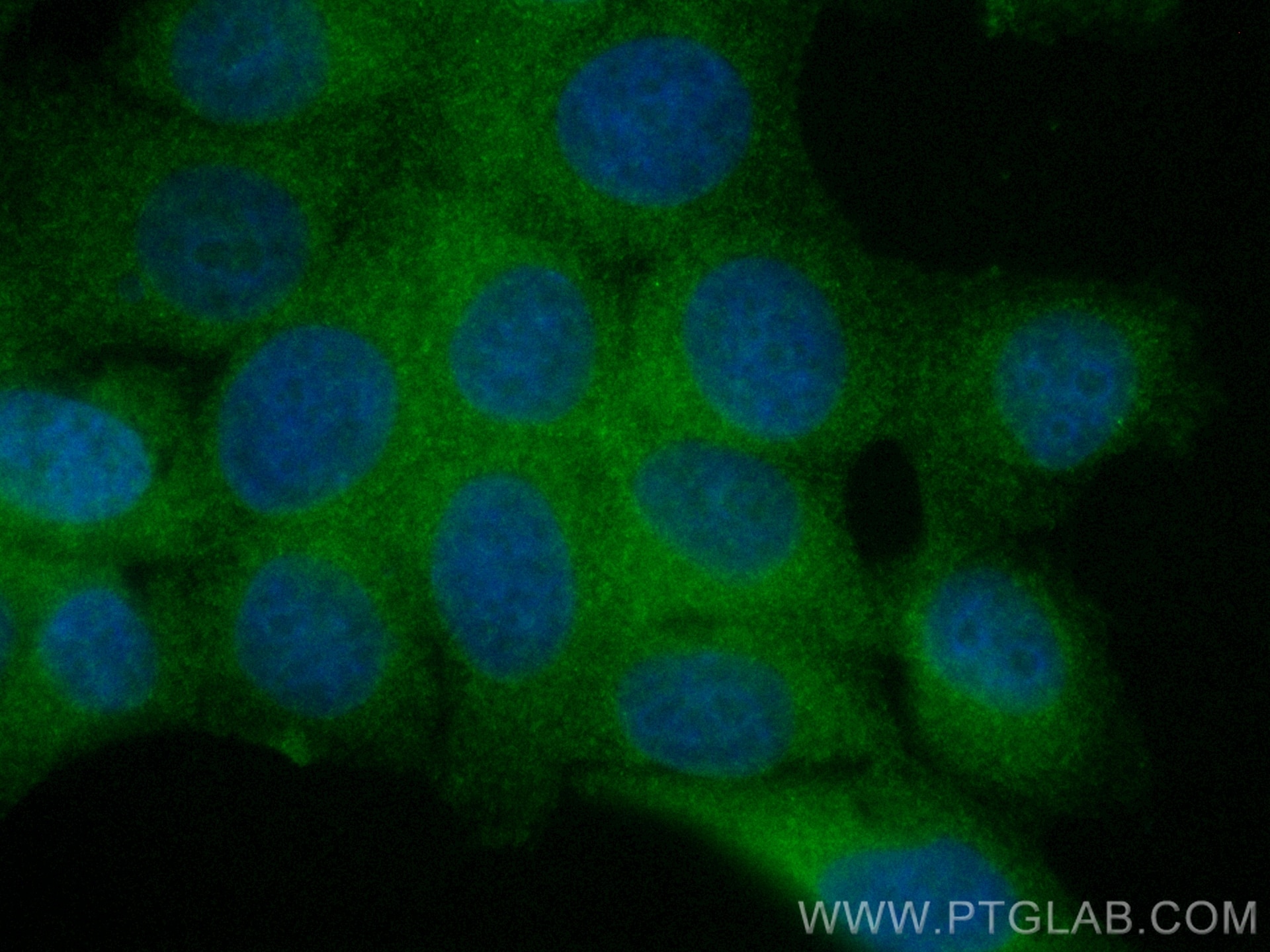Tested Applications
| Positive IF/ICC detected in | MCF-7 cells |
Recommended dilution
| Application | Dilution |
|---|---|
| Immunofluorescence (IF)/ICC | IF/ICC : 1:50-1:500 |
| It is recommended that this reagent should be titrated in each testing system to obtain optimal results. | |
| Sample-dependent, Check data in validation data gallery. | |
Product Information
CL488-84257 targets METTL2 in IF/ICC applications and shows reactivity with human samples.
| Tested Reactivity | human |
| Host / Isotype | Rabbit / IgG |
| Class | Recombinant |
| Type | Antibody |
| Immunogen |
CatNo: Ag10410 Product name: Recombinant human METTL2B protein Source: e coli.-derived, PGEX-4T Tag: GST Domain: 1-313 aa of BC107586 Sequence: MPVDYEINAHKYWNDFYKIHENGFFKDRHWLFTEFPELAPSQNQNHLKDWFLENKSEVCECRNNEDGPGLIMEEQHKCSSKSLEHKTQTPPVEENVTQKISDLEICADEFPGSSATYRILEVGCGVGNTVFPILQTNNDPGLFVYCCDFSSTAIELVQTNSEYDPSRCFAFVHDLCDEEKSYPVPKGSLDIIILIFVLSAIVPDKMQKAINRLSRLLKPGGMVLLRDYGRYDMAQLRFKKGQCLSGNFYVRGDGTRVYFFTQEELDTLFTTAGLEKVQNLVDRRLQVNRGKQLTMYRVWIQCKYCKPLLSSTS Predict reactive species |
| Full Name | methyltransferase like 2B |
| Calculated Molecular Weight | 313 aa, 36 kDa |
| Observed Molecular Weight | 36~43 kDa |
| GenBank Accession Number | BC107586 |
| Gene Symbol | METTL2B |
| Gene ID (NCBI) | 55798 |
| Conjugate | CoraLite® Plus 488 Fluorescent Dye |
| Excitation/Emission Maxima Wavelengths | 493 nm / 522 nm |
| Form | Liquid |
| Purification Method | Protein A purification |
| UNIPROT ID | Q6P1Q9 |
| Storage Buffer | PBS with 50% glycerol, 0.05% Proclin300, 0.5% BSA, pH 7.3. |
| Storage Conditions | Store at -20°C. Avoid exposure to light. Stable for one year after shipment. Aliquoting is unnecessary for -20oC storage. |
Background Information
METTL2A and METTL2B are required for the threonyl and argininyl tRNA methylation. METTL2 methyltransferase is responsible for 3-methylcytosine modification of arginine tRNAs in mammals. METTL2A and METTL2B are in higher homology 99%. This antibody detects both METTL2A and METTL2B.
Protocols
| Product Specific Protocols | |
|---|---|
| IF protocol for CL Plus 488 METTL2 antibody CL488-84257 | Download protocol |
| Standard Protocols | |
|---|---|
| Click here to view our Standard Protocols |




